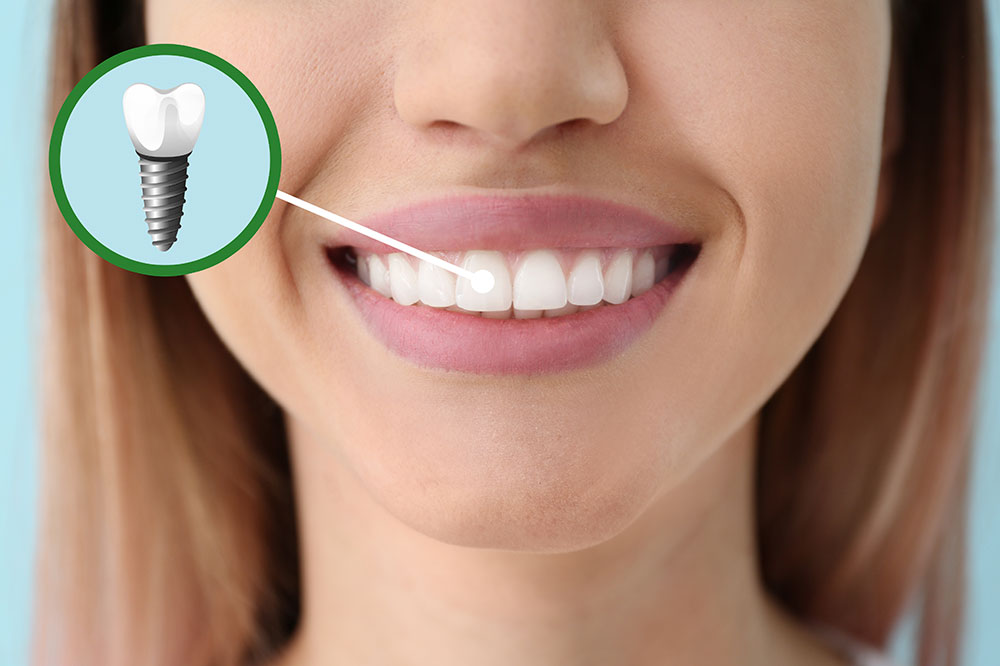Tips to Prepare for a Dental Implant Procedure

Dental implants are recommended by healthcare experts to deal with missing or decayed teeth. When the procedure is done right, an implant can last for several decades. About 2.3 million implant-supported crowns are made annually in the country. However, getting dental implants can mean procedures that are carried out over months. So one must be prepared to ensure proper care and avoid stress. Here is everything one should know about getting implants:
Understanding dental implants
Before understanding what one should do before dental implant treatment, it is important to understand dental implants. A dental implant is a surgery that replaces the tooth roots with screw-like metal posts. These implants replace damaged or missing teeth using artificial teeth. The new implants work and feel just like original teeth. The surgery is a suitable alternative to dentures or bridgework that may not work well for certain patients. It is also suitable for patients that lack natural teeth roots as this does not allow for building dentures or bridgework tooth replacements.
Here are a few tips for planning for dental implant treatment:
Get a comprehensive dental examination
The first step in preparing for a dental implant procedure is to undergo a comprehensive dental examination. A complete dental exam helps a dentist determine whether a patient can undergo the procedure. This involves x-rays, a visual exam, and examining the patient’s healthcare records. Patients who need implants and have a weak or suppressed immune system may require antibiotics before and after each oral surgery. Those allergic to certain anesthetics or other dental equipment may require alternatives prescribed by a dentist. If a patient is undergoing treatment for other conditions, the dentist might choose to alter the treatment plan for the dental implant procedure. A dentist may consider placing the implant and abutment during a single surgery if an individual has a healthy immune system. What’s more? The dentist should be able to fit the crown in the same session.
Ask questions
Once the dentist prepares a course of treatment, the patient must ask questions about the procedure. One can ask about the steps of their procedure or the preparations needed before and after the procedure. Asking about dos and don’ts is essential information that can put one’s mind at ease. Further, the patient can learn how the dentist will numb the surgical site. The numbing is generally done using a local or general anesthetic. Ultimately, asking relevant questions will ensure that one is well-versed with the procedure one will undergo.
Get the jaw ready
Sometimes the jaw is not capable of anchoring the implant properly. Here’s where the patient might need to improve the jaw structure before getting an implant. A bone graft might be required if the jaw is too thin or soft to hold an implant. Dentists might also smoothen or reshape the jaw as required. A large or bulky jaw might call for the removal of certain bones from the structure. A dentist might also remove impacted teeth found inside the jaw during the procedure. After the jaw has healed, the oral expert will initiate the dental implant procedures. Further, one may have to fast for half a day before getting implants.
Prepare for aftercare
A procedure results in swelling and soreness that may last for a few days, making it difficult to chew. So, before getting an implant, a patient must stock up on soft food that they can have after the procedure. Also, stocking up on painkiller prescriptions before the surgery may also save one the trouble of visiting a pharmacy later on. Patients should also apply for two to three days of leave from work and avoid social gatherings to get adequate rest. One must maintain a light schedule for about a week after the dental procedure. Another activity to avoid is heavy exercise. Further, those with kids should make arrangements for childcare or get help for at least two days after the oral surgery.
Start with prescription treatment
A patient who has agreed to dental surgery may be advised to take prescription antibiotics before the procedure. These antibiotics work as a substitute immune system to protect the body through surgical procedures. A dental implant may also require prescription immunosuppressants following a procedure. This helps prevent the body from attacking the implants and gives them space to heal. Those with chronic conditions should also take antibiotics before and after dental implant surgery following a consultation with their doctor.
Follow the dentist’s instructions
The dentist will come up with a reasonable treatment plan. So, patients must ensure they follow each guideline set by the healthcare expert for a successful surgical experience. This includes instructions to follow before and after a procedure. This may include limiting certain foods and beverages. The dentist might also ask the patient to stop taking certain prescriptions before treatment. Failing to follow the dentist’s guidelines might delay the surgery or lead to unwanted complications.
Ensure appropriate aftercare
A dental implant is a suitable replacement for real teeth and may not develop cavities. However, the implant may deteriorate if the gum tissue around it and underlying bone support are not clean and healthy. So, maintaining good oral hygiene can keep the gums healthy. This includes brushing at least twice daily and flossing once a day. One should also avoid clenching or grinding the implants after they have been surgically placed. Doing so applies force and pressure on the implants and other natural teeth, which may result in cracks. These cracks may lead to loose implants that will deteriorate much faster than anticipated. Regular checkups following surgery are also crucial for ensuring that dental implants and gums are healthy. Regular examinations may also help the dentist detect and prevent potential oral diseases.






